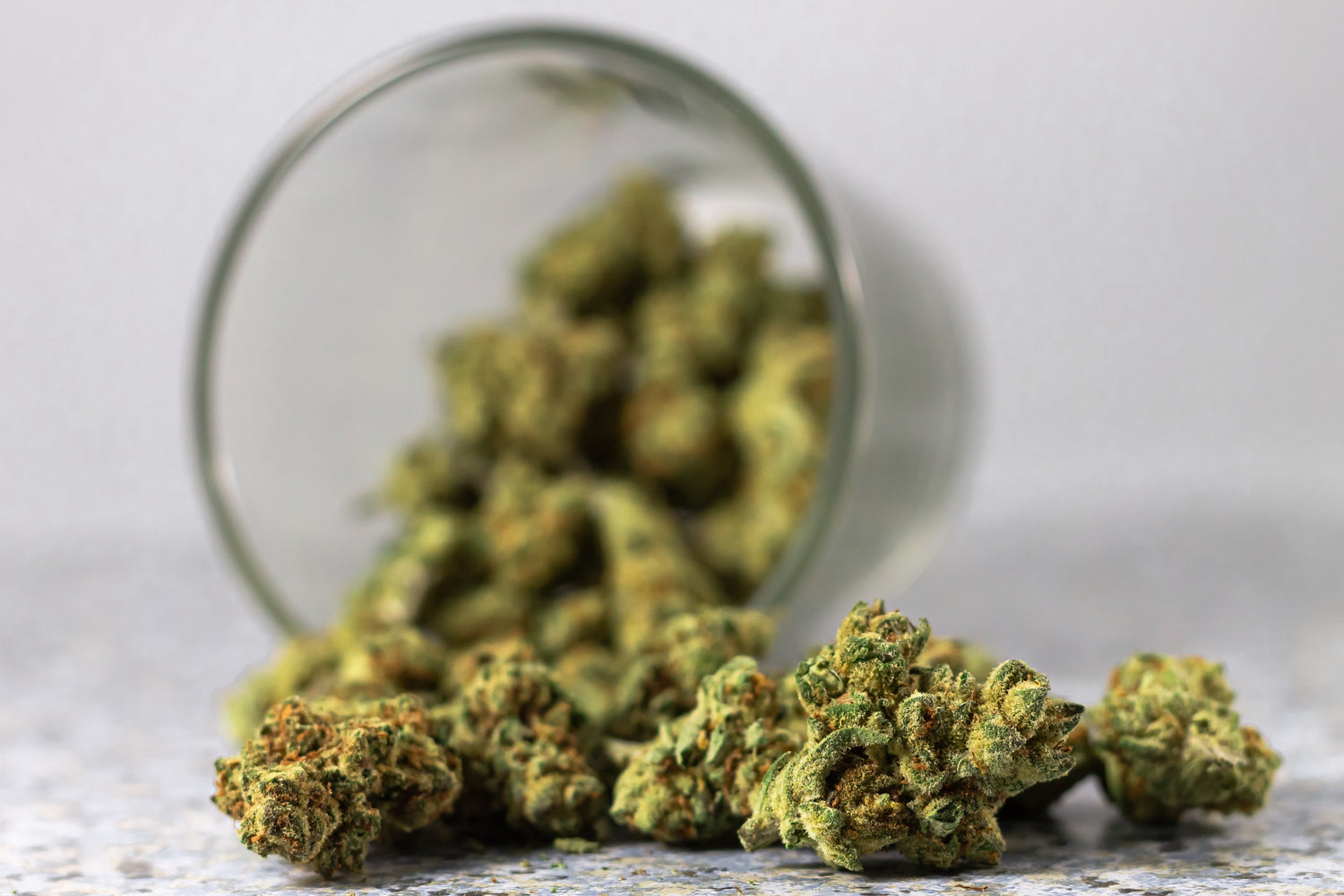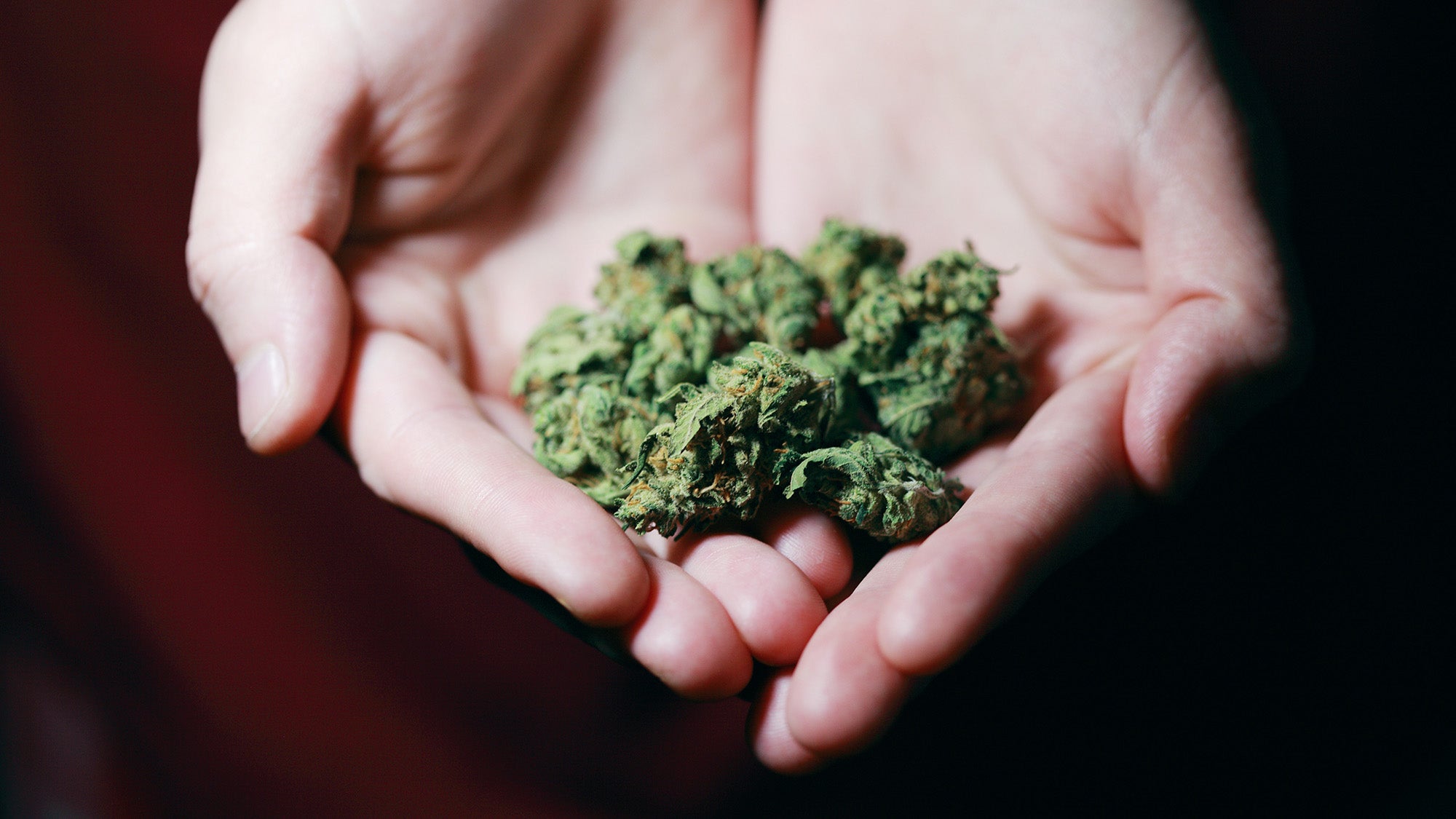Withdrawal from THC, the main psychoactive ingredient in cannabis, is a process in which a person attempts to overcome their addiction to this drug. THC addiction can lead to a range of physical, psychological and social problems, and withdrawal is often the first step in resolving these issues. THC withdrawal can be challenging, but there are many resources and support systems that can help you successfully navigate this process. In this text, we will explore aspects of THC withdrawal, including its symptoms, duration, challenges, and important aftercare steps.
Term THC withdrawal : THC withdrawal refers to the process by which a person attempts to stop their cannabis use and become abstinent. For many addicted users of marijuana or other THC-containing products, this process can cause withdrawal symptoms such as anxiety, irritability, sleep problems, and physical discomfort. THC detoxification often requires an inpatient facility as it can involve not only physical but also psychological addictions. It is important that affected individuals seek professional and experienced therapists to help them successfully navigate withdrawal and find the path to recovery.
What are the symptoms of THC withdrawal?
When withdrawing from THC you may experience the following symptoms:
- sleep disorders
- irritability
- Loss of appetite
- fatigue
- Mood swings
- anxiety
- nervousness
- Physical discomfort
It is important to note that each person may respond to withdrawal differently and the severity of symptoms varies. If you are concerned or your symptoms become more severe, you should seek professional help.
How does THC withdrawal work?
THC withdrawal can occur differently depending on how long and to what extent THC was consumed. In general it goes like this:
- Onset: After the last consumption of THC, withdrawal symptoms such as difficulty sleeping, irritability, loss of appetite, and fatigue may occur.
- Peak: Symptoms may peak within 1-3 days of last consumption.
- Resolution : Symptoms usually improve within 1-2 weeks.
Important information about withdrawal:
Cannabis withdrawal, also known as quitting weed, is a process in which a person stops using cannabis to free themselves from addiction. Withdrawal from cannabis can cause a variety of physical and psychological side effects, including withdrawal symptoms such as anxiety, irritability, sleep problems, and even psychosis. Cannabis addiction can have both physical and psychological effects, and weaning yourself off the drug can be challenging.
Physical withdrawal from cannabis can also be referred to as cold turkey and refers to the process by which the brain has adapted to consumption and suddenly has to cope without the drug. In this process, withdrawal symptoms caused by physical dependence may occur.
Cannabis withdrawal is an important issue for many cannabis users, especially those concerned about their addiction to the drug. Although cannabis withdrawal can be challenging, there are many resources and support systems that can help you navigate this process successfully. It is important to note that withdrawal from hashish or other THC-containing products can progress differently and that each user will respond to withdrawal individually.
How long does THC withdrawal last?
The duration of THC withdrawal varies from person to person and depends on various factors, such as the duration and extent of consumption, age and health. Generally, THC withdrawal lasts about 1-2 weeks, but for some people it can last longer. During this time, physical and psychological withdrawal symptoms may occur, which subside once the body has freed itself of the active ingredients of THC. It's important to get enough rest and eat balanced meals to help your body recover. If your symptoms become more severe, you should seek professional help.
Why should THC withdrawal be carried out?
THC withdrawal can be done for a variety of reasons, including:
Health reasons: Long-term THC consumption can have negative health effects, such as memory impairment, poor concentration and an increased risk of mental illness. Withdrawal can help reduce these effects and improve health.
Life Enhancement: THC use can impact life by impairing the ability to take responsibility, maintain relationships, and achieve goals. Withdrawal can help reduce these impairments and improve life.
Prevention of addiction : Early withdrawal can help prevent addiction before it develops.
Legal reasons : THC is illegal in many countries and consumption can lead to legal consequences. Withdrawal can help avoid these consequences.
Start of form
What difficulties are associated with THC withdrawal?
THC withdrawal can be associated with a number of difficulties, including:
Withdrawal symptoms: Physical and psychological withdrawal symptoms such as headaches, irritability, insomnia, loss of appetite and depression may occur.
Relapses: THC withdrawal can be difficult because cravings for THC may persist during withdrawal, which can lead to relapses.
Stress: THC withdrawal can be stressful, especially when faced with other challenges in life.
Relationship problems: THC withdrawal can affect relationships with friends and family, especially if those people continue to use THC.
Financial difficulties: THC withdrawal can also cause financial difficulties, especially if you have previously spent a lot of money on THC.
It is important to note that each person may experience different difficulties with THC withdrawal and it is important to seek professional help to find the best approach.
Why is cannabis withdrawal particularly important for young users?
THC withdrawal is particularly important for adolescent users for the following reasons:
Brain development: Adolescents' brains are still developing and THC use can impair brain development and have negative effects on cognitive functions, such as memory, concentration and learning ability. Mental health: THC use can increase the risk of mental illness, including Anxiety and depression, increase. Withdrawal can help reduce these risks.
School performance: THC use can affect school performance and make it difficult to complete school. Withdrawal can help reduce these impairments and improve school performance.
Social Development: THC use may impair social development by impairing the ability to form and maintain social relationships. Withdrawal can help reduce these impairments.
Where can you do a cannabis withdrawal?
THC withdrawal can be done in a variety of places, including:
Clinics: There are specialized clinics that specialize in THC withdrawal and offer comprehensive care and support.
Hospitals: THC withdrawal can also be performed in a hospital, especially if there are medical problems.
Rehab Clinics: THC withdrawal can also be performed in a rehab clinic, especially if comprehensive withdrawal support and treatment for mental health issues is required.
At Home: THC withdrawal can also be done at home, but it is important to seek professional help for the best possible support.
Why is outpatient follow-up care necessary after THC withdrawal?
Outpatient follow-up care after THC withdrawal is important because it helps minimize the risk of relapse and helps establish healthy behavior and thought patterns. Some reasons why outpatient follow-up care is important are:
Monitoring: Follow-up care provides monitoring of progress and a way to identify and manage setbacks.
Support : Aftercare provides ongoing support and motivation to stay on the road to recovery.
Treating Mental Health Issues : THC withdrawal can lead to mental health issues that require treatment. Aftercare provides an opportunity to address and treat these issues.
Promote healthy behaviors: Follow-up care can help establish healthy behaviors and promote a healthy lifestyle.
Preventing relapses: Outpatient follow-up care can help prevent relapses by helping the person make healthy decisions and develop responsible behavior.
How can parents help with aftercare?
Parents play an important role in aftercare for THC withdrawal by supporting and encouraging the individual to stay on the road to recovery. Some important roles parents can take on in aftercare include:
Promote responsibility: Parents can encourage the individual to take responsibility for their actions and make healthy choices.
Support in coping with mental health problems: Parents can support those affected by helping them deal with mental health problems such as anxiety or depression.
Promote healthy behaviors: Parents can encourage the affected person to establish healthy behaviors and promote a healthy lifestyle.
Progress Monitoring : Parents can monitor the individual's progress and provide support and motivation as needed.
Preventing relapses: Parents can help the individual prevent relapses by helping them make healthy choices and develop responsible behavior.
Conclusion and summary:
Cannabis addiction is a serious issue that can develop quickly, especially in younger adults who have smoked weed daily for a long time. It is strongly advised not to use cannabis without medical assistance. The duration of withdrawal can last weeks and symptoms of withdrawal can include both physical and psychological withdrawal symptoms. The first withdrawal symptoms can occur after just a few hours without THC and can increase cravings for the drug. Cannabis withdrawal is divided into four phases and the effect of THC on the body can influence the withdrawal symptoms that occur.
Withdrawal from cannabis can cause physical withdrawal symptoms as all THC is removed from the body. The Federal Center for Health Education warns against addiction to marijuana and recommends overcoming addiction in order to reduce symptoms at the same time. Cannabis withdrawal can last several weeks and include symptoms such as craving for the drug, difficulty sleeping, and irritability. In order to successfully withdraw from cannabis, it is important to stop cannabis consumption completely and also avoid cannabinoids that are used through medication.
It may help to use a setting of therapy or medication support to ease physical withdrawal. Addicts who have used cannabis regularly and over a long period of time may begin to experience withdrawal symptoms within 24 to 48 hours after their last use. The effect of THC and thus the withdrawal symptoms that occur depend on the duration and extent of cannabis consumption. It is important to note that cannabis is one of the most commonly used illegal drugs and just smoking one joint can lead to addiction. Successful withdrawal can lead to living a life without cannabis and without its psychological and physical effects.






Leave a comment
This site is protected by reCAPTCHA and the Google Privacy Policy and Terms of Service apply.